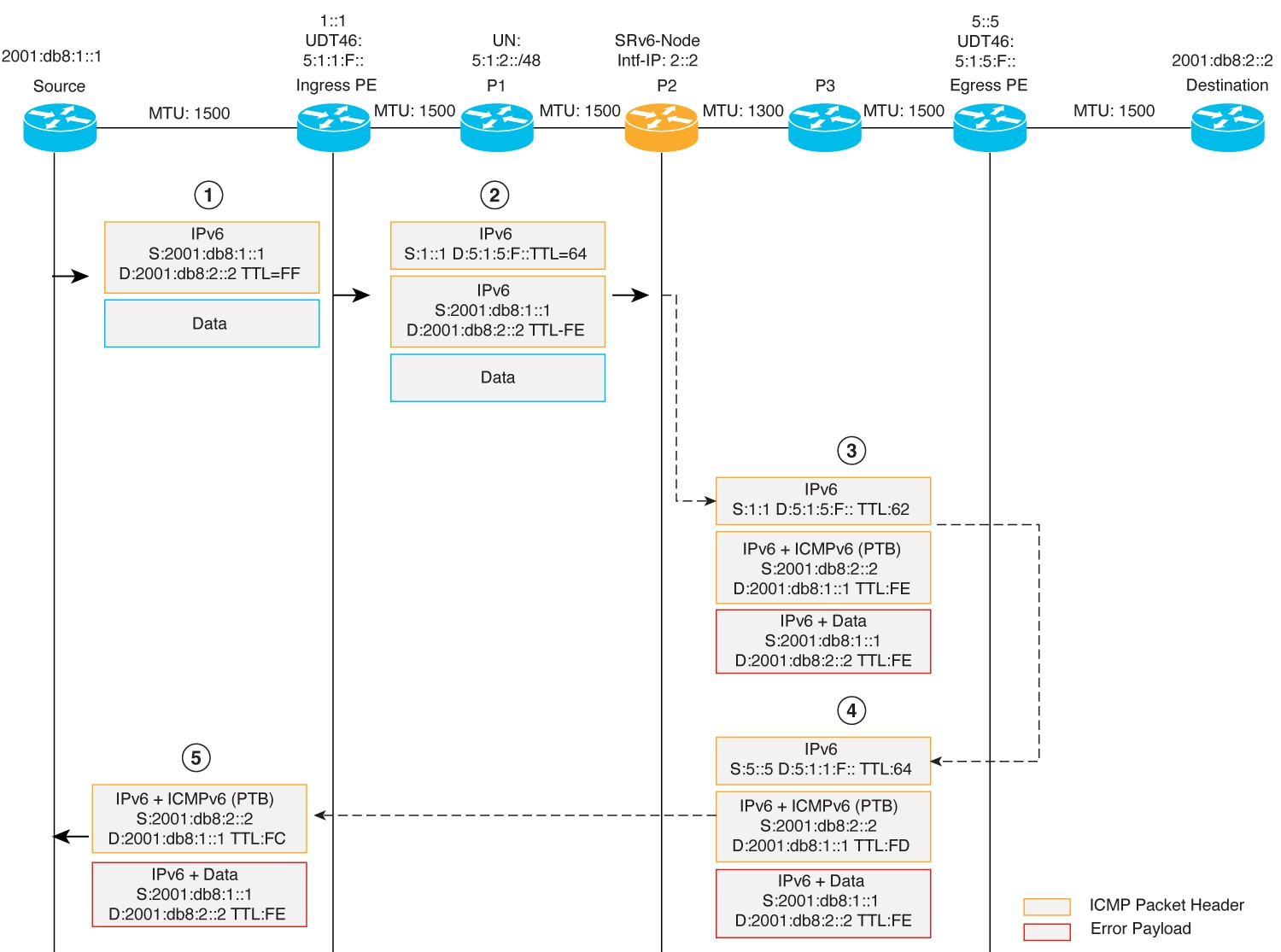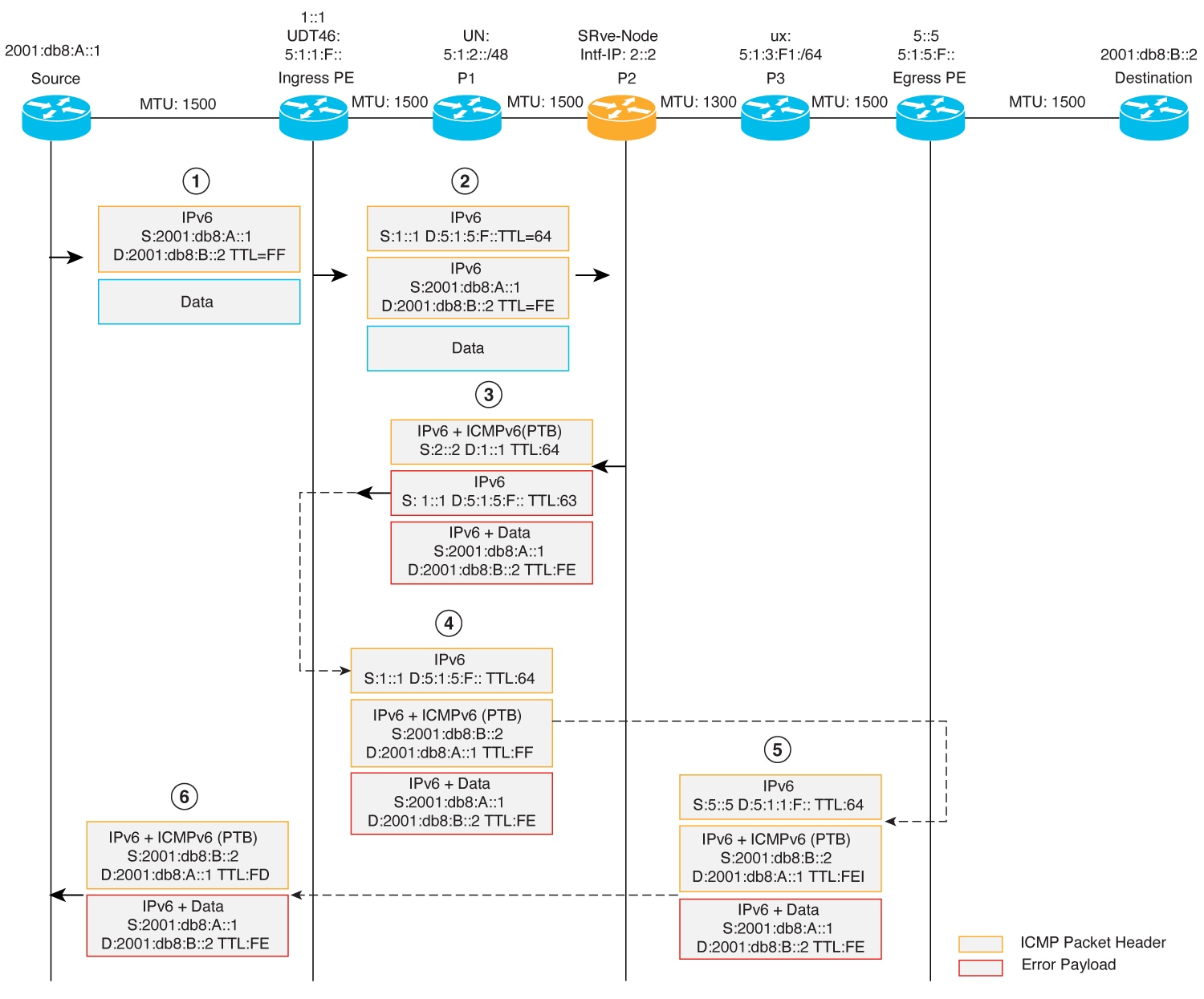Feature Information SRv6 Path MTU Discovery
|
Feature |
Release |
Description |
|---|---|---|
|
SRv6 Path MTU Discovery |
Cisco IOS XE 17.18.1a |
This feature introduces a mechanism to determine the maximum transmission unit (MTU) for packets traversing an SRv6 underlay network. It ensures efficient packet forwarding by preventing fragmentation and packet drops, thereby allowing network devices to dynamically adjust packet sizes to avoid exceeding link MTU limits. The system relays ICMP Packet Too Big (PTB) messages from the SRv6 underlay to the IPv6/IPv4 overlay network, supporting both Transit-node and Headend-node PTB relay methods. |



 Feedback
Feedback